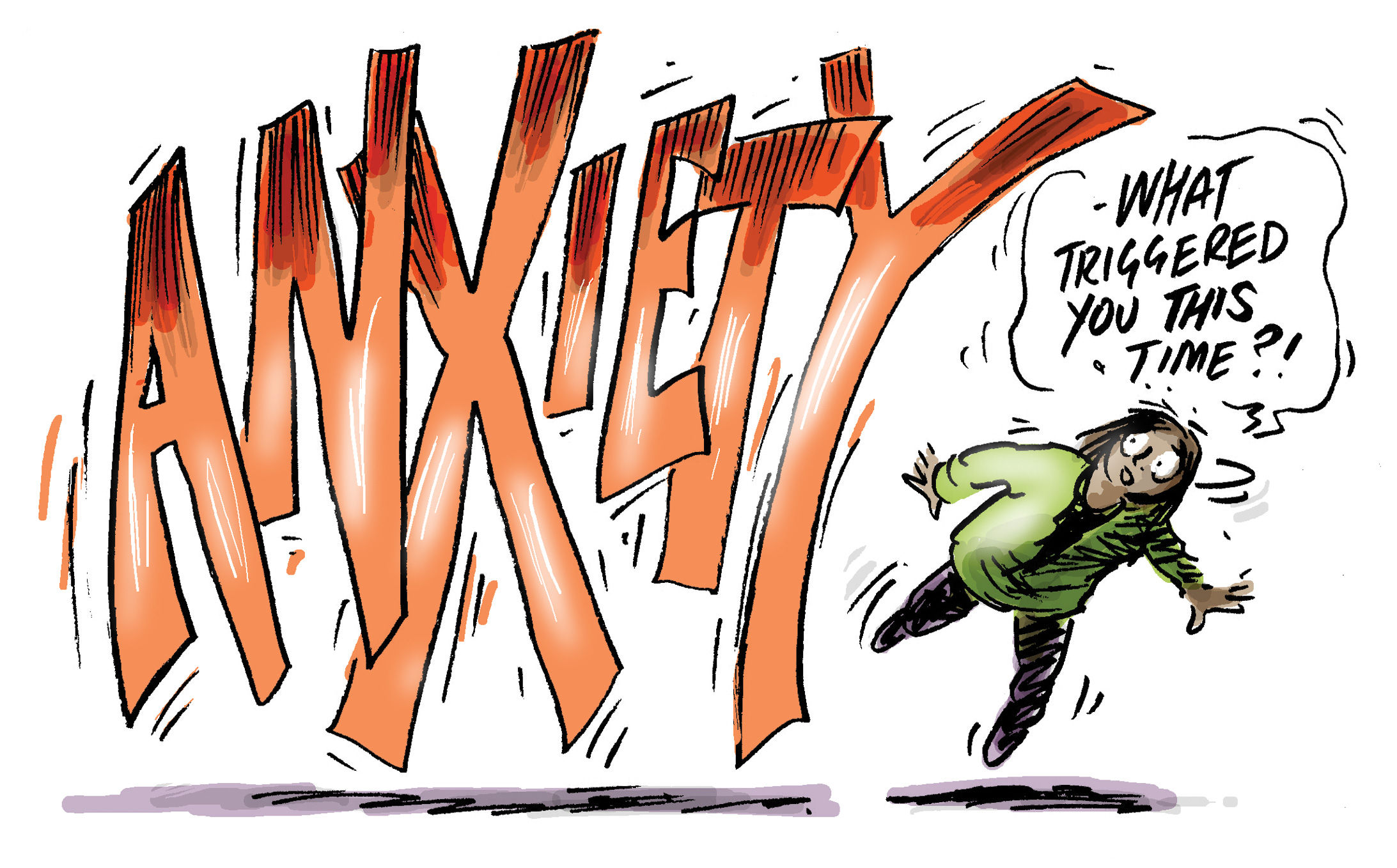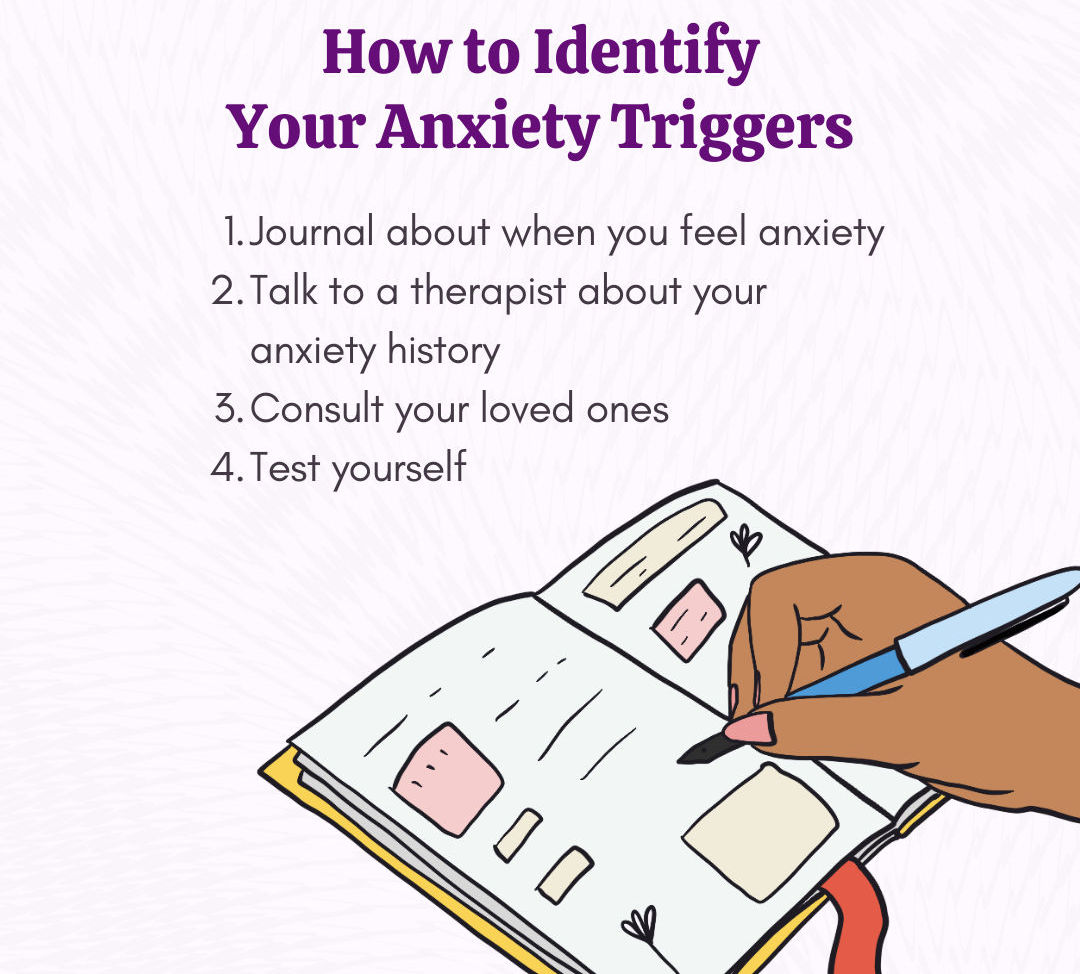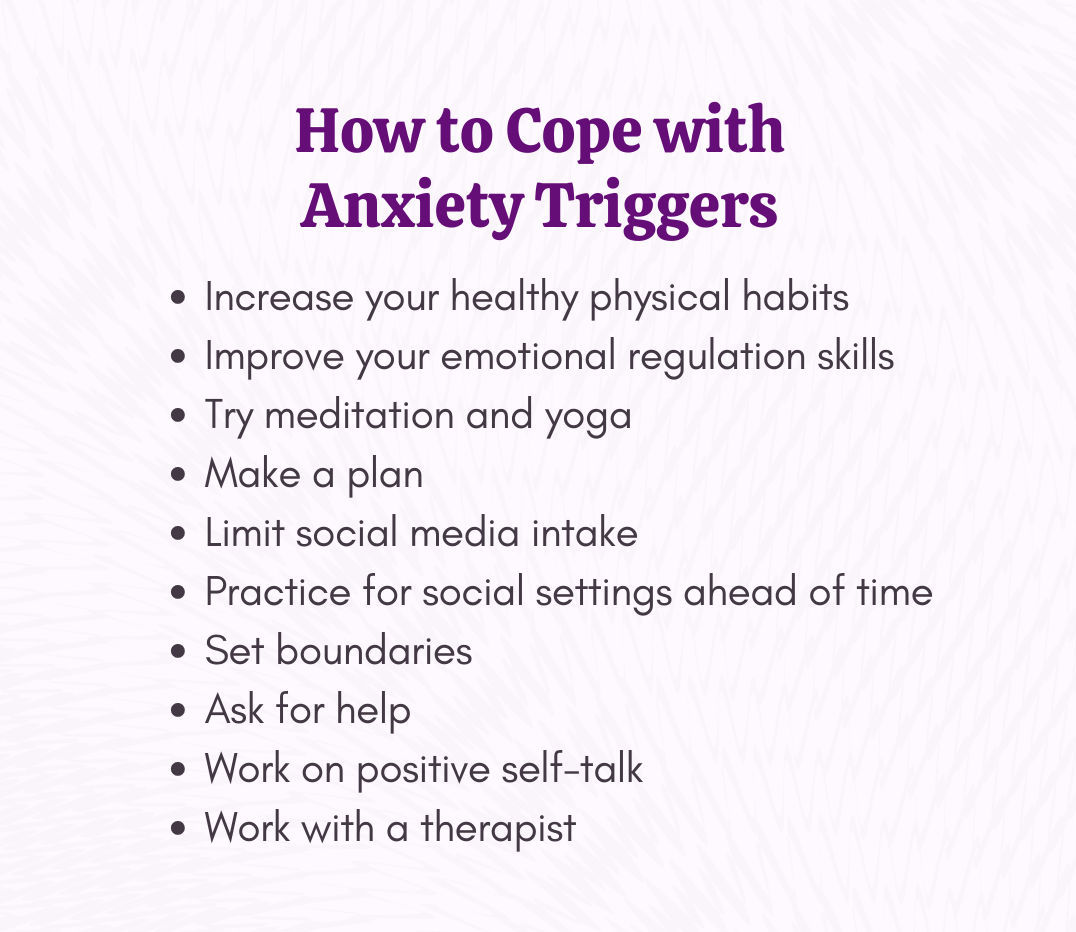Identify your worry triggers
Worry is a normal human emotion. Once you know what your triggers are, you can start to develop strategies for coping with them.

Worry is a normal human emotion. We all worry about things from time to time. However, if you find yourself worrying excessively, it can interfere with your daily life and cause significant distress.
One of the first steps to managing worry is to identify your worry triggers. What are the things that tend to make you start worrying? Once you know what your triggers are, you can start to develop strategies for coping with them.
Here are some tips for identifying your worry triggers:
- Keep a journal. At the end of each day, write down the things that made you worry. This will help you to identify patterns and trends.
- Pay attention to your body. When you start to worry, notice the physical sensations in your body. Do you feel tense, anxious, or restless? Pay attention to your thoughts and feelings as well.
- Talk to a trusted friend or family member. They may be able to help you to identify your triggers and offer support.
Common worry triggers
Here are some common worry triggers:
- Stressful life events. This could include things like job loss, financial problems, relationship difficulties, or health concerns.
- Uncertainty. Not knowing what the future holds can be a major source of worry.
- Perfectionism. If you have high standards for yourself and others, you may be more likely to worry about making mistakes or not being good enough.
- Negative thinking. If you tend to focus on the negative and catastrophize, you're more likely to worry.
- Past experiences. If you have experienced trauma or difficult times in the past, you may be more likely to worry about those things happening again.
How to cope with worry triggers
Once you know your worry triggers, you can start to develop strategies for coping with them. Here are a few tips:
- Challenge your negative thoughts. When you start to worry, ask yourself if your thoughts are realistic and helpful. Are you catastrophizing or jumping to conclusions? If so, try to challenge your thoughts and replace them with more realistic and helpful ones.
- Focus on the present moment. When you're worrying about the future, try to bring your attention back to the present moment. Notice what you're doing right now and focus on the task at hand.
- Practice relaxation techniques. Relaxation techniques such as deep breathing, meditation, and yoga can help to calm your mind and body and reduce anxiety.
- Seek professional help. If you're struggling to manage your worry on your own, talk to a therapist. A therapist can teach you coping skills and help you to develop a treatment plan.
Identifying your worry triggers is the first step to managing them. By understanding what makes you worry, you can start to develop strategies for coping with those triggers and reducing your overall anxiety.

 Fine End
Fine End 











.png?updatedAt=1694367764436)

